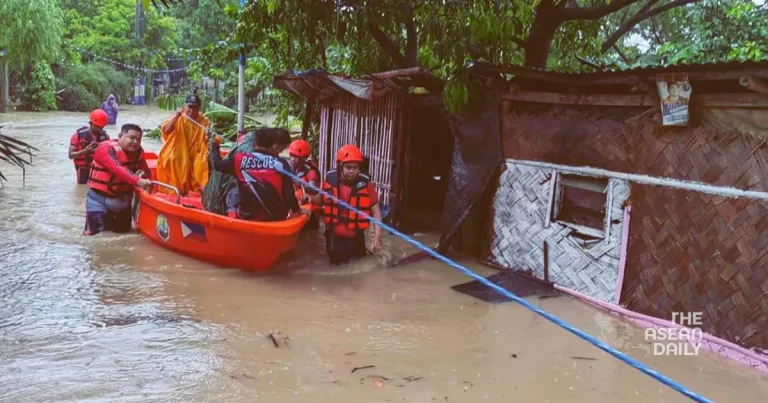12-9-2024 (MANILA) The Philippines has once again been identified as the country most vulnerable to natural disasters and climate change impacts, according to the 2024 WorldRiskReport. This marks the third consecutive year that the Southeast Asian nation has held this unenviable position, underscoring the urgent need for enhanced disaster preparedness and climate resilience measures.
The report, published by the Institute for International Law of Peace and Armed Conflict, assessed 193 countries based on their exposure to natural hazards and their vulnerability to extreme events and climate change impacts. The Philippines received a WorldRiskIndex score of 46.91, with alarmingly high scores for both exposure (39.99) and vulnerability (55.03).
The assessment takes into account a wide range of factors, including the frequency and intensity of earthquakes, tsunamis, flooding, cyclones, droughts, and sea level rise. It also considers a country’s susceptibility to damage and its coping and adaptive capacities in the face of such events.
Following closely behind the Philippines in the risk rankings are Indonesia (41.13), India (40.96), Colombia (37.81), and Mexico (35.93). The presence of multiple Asian countries in the top ten highlights the region’s particular vulnerability to natural disasters and climate change.
The report also shed light on the compounding effects of multiple crises, citing the Philippines as a prime example. During the COVID-19 pandemic, the country was hit by 22 tropical cyclones, including Typhoon Goni, one of the strongest storms ever recorded. This confluence of events led to a dramatic increase in humanitarian needs and negatively impacted the mental health of the population.
In response to these findings, Science and Technology Secretary Renato Solidum expressed optimism that the country’s ranking would improve in the long term. He pointed to locally-developed technologies and websites, such as HazardHunters PH and GeoRisk Philippines, which can assist local governments in identifying and mitigating potential hazards.
Solidum emphasised the critical need for a national land use act to ensure a unified approach to land management across local governments. He stated, “It would be better to have a National Land Use Act so that all local governments will have the same view when it comes to information on how they can use our land and make it safe for Filipinos.”
The science chief also noted improvements in flood management, with some areas experiencing faster receding of floodwaters due to various interventions. However, he stressed the importance of more rigorous policy implementation at the local level and increased public awareness of risk-taking behaviours.
The WorldRiskReport advocates for a holistic approach to risk analysis and crisis management, recognising that multiple crises often interact and reinforce each other. It calls for closer cooperation between research and humanitarian practice to strengthen comprehensive risk analyses and translate them into concrete actions.
The report also emphasises the need for robust healthcare systems, which are often overwhelmed during crises. It recommends significant investment in expanding and strengthening these systems to improve their coping and preparedness capacities.




